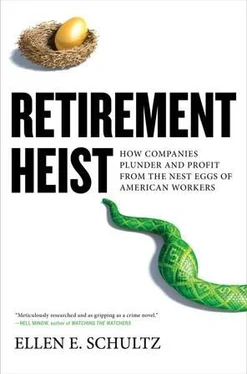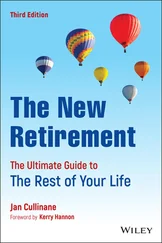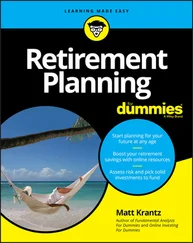Initially, companies bought policies to protect them from the deaths of certain executives, or “key” employees. It made sense for partners in law and accounting firms to buy life insurance on each other. But, encouraged by insurance brokers, companies began buying it on broad swaths of their employees, because by insuring thousands of employees, not just “key men,” the companies can place greater sums in life insurance contracts.
Dow Chemical, the Midland, Michigan, company known for its manufacturing of napalm, breast implants, and Agent Orange, was initially skeptical. An internal memo noted that, except for top-paid executives, it was “doubtful that Dow has an insurable interest in any of its employees.” But it overcame its qualms and by 1992 had purchased life insurance policies on more than 20,000 employees.
Congress had no idea how widespread this practice had become until someone ratted on them. In 1995, a brown envelope was left on the desk of Ken Kies, chief of staff at the Joint Tax Committee. The envelope contained a list of companies that had bought life insurance on employees—along with calculations showing that a company might take in $1.2 billion over ten years by insuring 50,000 of its employees. It also noted that from 1993 to 1995, Wal-Mart had taken out insurance on 350,000 workers.
Lawmakers did the math and were appalled. They weren’t concerned about whether Wal-Mart had an insurable interest in its stock clerks and store greeters, but they did care a lot about the loss of tax revenue. Companies were borrowing money from the policies and deducting the interest. The IRS deemed that the leveraged COLI taken out by seven hundred companies were sham transactions with no business purpose other than to score tax breaks. It filed a flurry of tax court cases, and companies subsequently took big charges for the disallowed deductions for interest on policy loans; among them were American Greetings, the Brooklyn, Ohio, maker of Tender Thoughts brand greeting cards and owner of Holly Hobbie and Care Bears licenses, and W.R. Grace, the Columbia, Maryland, manufacturer of building materials, which took out life insurance on its workers while defending thousands of asbestos-related lawsuits.
Within minutes of the interest-deduction phase-out, companies found a way around it. Instead of borrowing money from insurance companies, they simply borrowed it elsewhere. This was called “indirect leverage.” The practice was especially appealing to banks, which can borrow money cheaply. Banks bought fresh policies on employees and in 1997 were floating the idea that they could buy life insurance on depositors and credit card holders as well. Fannie Mae, the giant mortgage buyer, proposed to insure the lives of home-mortgage holders, but the plan didn’t go far. Congress nixed those ideas and tried to plug the indirect-leverage loophole in 1998. The Joint Tax Committee’s Ken Kies, in classic revolving-door fashion, had quit his government job and was now lobbying for the COLI industry, which led a campaign that blanketed Congress with more than 170,000 letters and faxes and ran radio and newspaper ads targeting lawmakers as anti-business. The effort to close the loophole failed. Former House Ways and Means chairman Bill Archer, who had criticized janitors insurance as a tax shelter in 1995, joined the board of Clark/Bardes, the most influential COLI provider, in 2001.
Congress remained suspicious that companies were buying insurance on workers as a tax dodge. Employers said absolutely not: They had a sound business purpose. “The main reason employers are buying life insurance is so that they can provide benefits, in particular retiree medical benefits,” maintained Jack Dolan, a spokesman for the American Council of Life Insurers.
Employers were betting, correctly, that the people making the decisions in Washington knew little about life insurance, taxes, accrual accounting, and retiree health plans. For one thing, the assets in the policies aren’t cash that companies can pull out and spend; they don’t get cash until the covered employees die, so there’s no way the companies can use the policies as a piggy bank to “pay” for health care premiums or prescription drugs. In any case, many companies that bought life insurance on their workers didn’t provide retiree health coverage, or if they did, few of the workers were eligible for it.
Not everyone was snowed. “We do not believe that the purpose of the [plan] was to fund employee benefits,” wrote Judge Robert P. Ruwe in a 1999 U.S. Tax Court ruling against Winn-Dixie. The Jacksonville, Florida, supermarket chain was tussling with the IRS over the legitimacy of deductions it had taken for loans from policies covering 56,000 workers. Judge Ruwe pointed out that staff turnover at Winn-Dixie was so high that few employees were ever eligible for retiree medical benefits, yet the company had continued to collect death benefits on those who left the company before retirement. The judge concluded that the executives “recognized that it was a tax shelter” and that ultimately, over the sixty-year life of the policies, the company hoped to save $2 billion in taxes. The tax court wasn’t taking aim at the company’s practice of insuring its checkout clerks and bag boys; it was going after the interest deduction. And it ultimately won. In 2001, the U.S. Court of Appeals for the Eleventh Circuit in Atlanta upheld the tax court decision, and in 2008 the U.S. Supreme Court declined to hear Winn-Dixie’s appeal. The interest deduction was dead.
Though employers lost the interest deduction, they didn’t lose the desire to buy life insurance on workers, because they could still use policies as vehicles to generate tax-free income. In the early 2000s, the practice was proliferating. In 2002, Nestlé USA had policies covering 18,000 workers, Pitney Bowes Inc. had policies covering 23,000, and Procter & Gamble Co. had 15,000 covered workers. The companies all claimed they were using the policies to finance employee benefits. “We have not done this for financial gain,” Nestlé said. American Electric Power claimed that the death benefits were “dedicated to retiree benefits.” Hillenbrand Industries Inc., a coffin maker in Batesville, Indiana, said it bought the policies to beef up employee benefits.
By the early 2000s, the days of companies buying policies on masses of low-level clerks and cashiers were largely over as more states, including California, Michigan, Ohio, Illinois, and Minnesota, required companies to secure employee consent to include them in coverage. Some companies had done this in the 1990s, including Walt Disney, which offered workers an incentive of a modest amount of life insurance without charge in exchange for giving the company permission to take out a policy on them.
This didn’t dampen sales, because companies figured they could take out larger amounts of death benefits if they bought new policies on higher-paid employees. Janitors insurance mutated into “managers insurance.”
Obtaining a manager’s consent wasn’t difficult. Bank of America appealed to their company spirit, telling managers that letting the bank buy coverage on their lives would help the company. The New York Times Co. offered a carrot: It told eligible executive-level employees they could participate in a deferred-compensation plan if they let the company make itself the beneficiary of insurance on their lives. Employers rarely tell employees how much they’re covered for, but the amounts can be substantial.
Focusing on middle managers has an additional advantage: It’s easier for employers to make the case that they use the insurance to finance employee benefits, since managers are almost always eligible for benefits, whereas store clerks usually are not. Under tax law, life insurance purchased by a corporation is supposed to have a business purpose. Illegal tax avoidance is not a sanctioned business purpose.
Читать дальше












